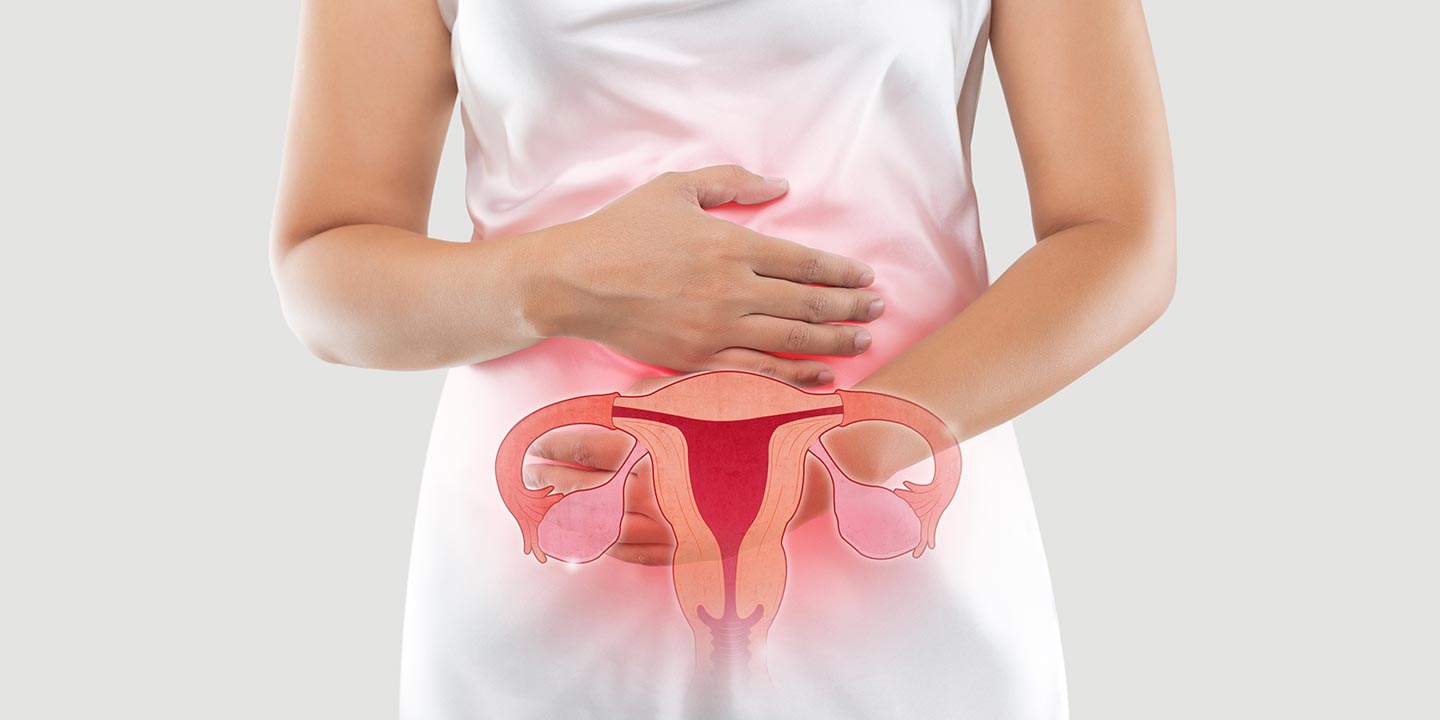Are you doubting between PCOD vs PCOS? Before entering the 20s, the problem of irregular menstruation appears.
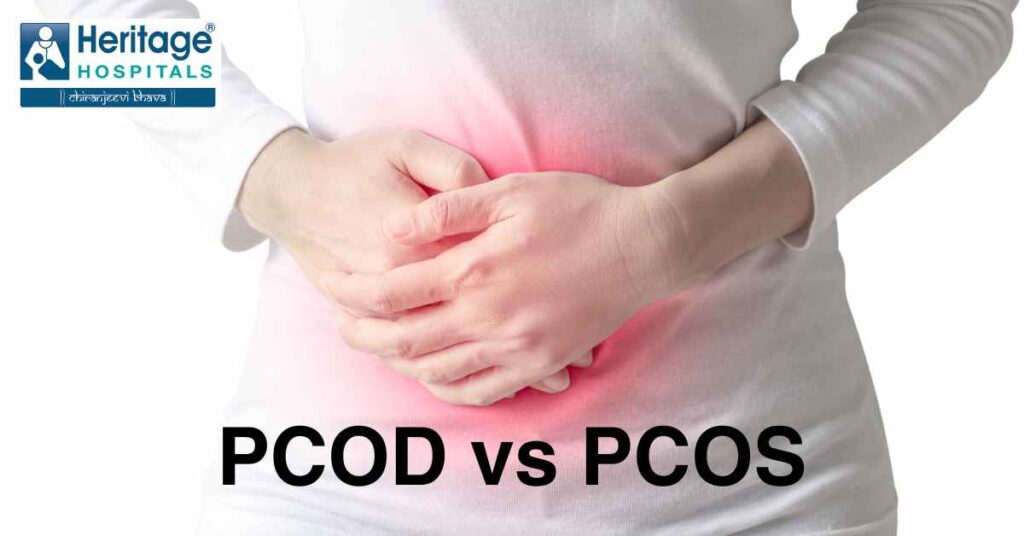
The names of two diseases associated with women’s general health problems (Women Health). PCOD and PCOS. These days the disease is also seen in younger girls. The issue of Irregular Periods appears before entering the 20s.
Navigating the complexities of reproductive health can be challenging, especially when it comes to understanding conditions like PCOD (Polycystic Ovarian Disease) and PCOS (Polycystic Ovary Syndrome). While these terms are often used interchangeably, they represent different aspects of ovarian health.
PCOD refers to the presence of multiple cysts on the ovaries and is considered a more benign condition, often linked to hormonal imbalances that may resolve with lifestyle changes. In contrast, PCOS is a broader syndrome that includes a range of symptoms such as irregular periods, weight gain, and insulin resistance, potentially leading to more serious health issues if left untreated. Understanding the distinctions between PCOD and PCOS is crucial for effective diagnosis and management, empowering individuals to make informed decisions about their health and treatment options.
Table of Contents
PCOD vs PCOS:
What is PCOD?
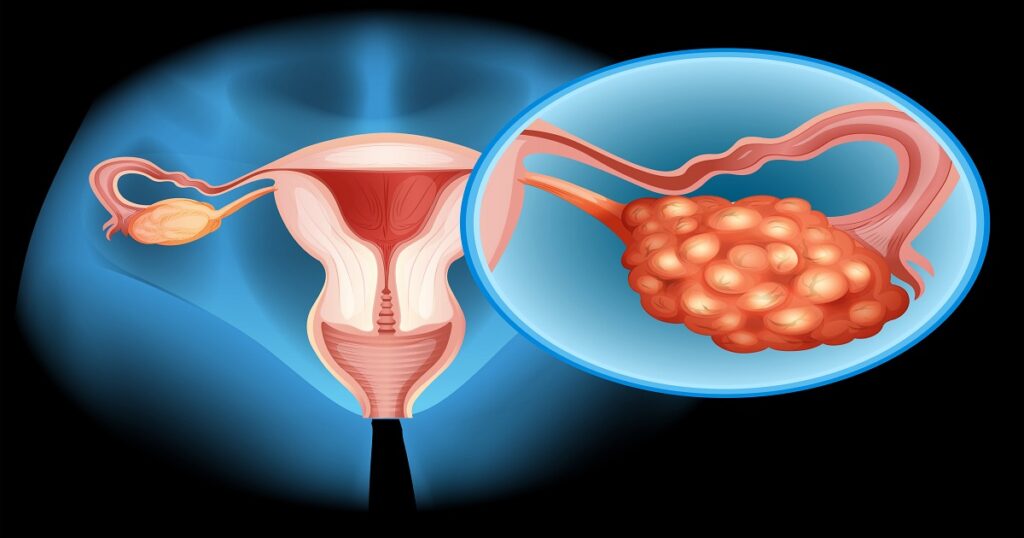
Polycystic Ovarian Disease (PCOD) is a hormonal disorder that affects many women, particularly during their reproductive years. It is characterized by the presence of multiple small cysts on the ovaries, which can disrupt normal hormonal balance and lead to irregular menstrual cycles.
The exact cause of PCOD is not fully understood, but factors such as genetics, insulin resistance, and lifestyle choices are believed to contribute to its development. Women with PCOD may experience a range of symptoms, including irregular periods, weight gain, acne, excessive hair growth (hirsutism), and fertility challenges.
While PCOD can lead to health complications, it is generally considered less severe than Polycystic Ovary Syndrome (PCOS), which includes more complex metabolic issues. Early diagnosis and management are crucial for reducing symptoms and preventing long-term complications, such as diabetes and heart disease.
Treatment often involves lifestyle modifications, including a balanced diet and regular exercise, as well as medications to regulate menstrual cycles and manage symptoms. Understanding PCOD is vital for women to take charge of their reproductive health and overall well-being, allowing for a better quality of life.
What is PCOS?
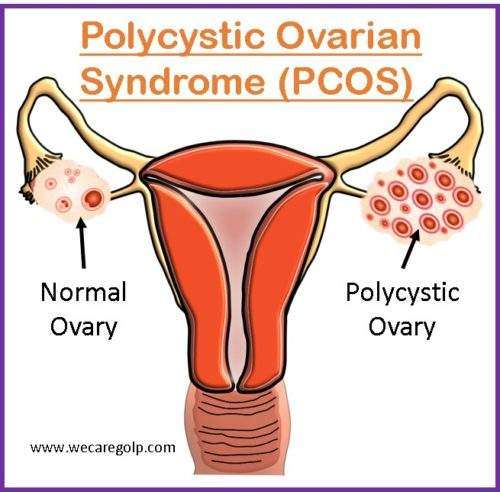
Polycystic Ovary Syndrome (PCOS) is a hormonal disorder that affects a significant number of women of reproductive age. It is characterized by a combination of symptoms, including irregular menstrual cycles, elevated levels of androgens (male hormones), and polycystic ovaries—where the ovaries contain numerous small cysts.
The exact cause of PCOS is not fully understood, but factors such as genetics, insulin resistance, and inflammation are believed to play a role. Women with PCOS often experience a range of symptoms, including weight gain, acne, excessive hair growth (hirsutism), thinning hair, and fertility issues.
PCOS can lead to serious health complications if left unmanaged, including type 2 diabetes, heart disease, and endometrial cancer. Therefore, early diagnosis and appropriate management are essential. Treatment often involves lifestyle changes like a healthy diet and regular exercise, alongside medications to regulate menstrual cycles and address symptoms.
Understanding PCOS is crucial for women to take proactive steps in managing their health. With the right approach, many women with PCOS can lead healthy, fulfilling lives while effectively managing their symptoms and reducing potential risks. People with PCOS are more likely to have thyroid disorders, such as hyperthyroidism and hypothyroidism.
Symptoms of PCOS and PCOD: Understanding the Differences
Polycystic Ovary Syndrome (PCOS) and Polycystic Ovarian Disease (PCOD) are both hormonal disorders that affect women’s reproductive health, but they present with different symptoms and implications. Understanding these symptoms is essential for diagnosis and effective management.
Symptoms of PCOS
PCOS is a complex syndrome characterized by a range of symptoms that can vary widely among individuals. Some of the most common symptoms include:
- Irregular Menstrual Cycles: One of the hallmark signs of PCOS is irregular or absent menstrual periods. Women may experience cycles that are longer than 35 days or skip periods altogether.
- Excess Androgens: Elevated levels of male hormones, known as androgens, can lead to various symptoms. Women with PCOS may notice increased facial and body hair (hirsutism), acne, and oily skin. Some may also experience male-pattern baldness or thinning hair.
- Polycystic Ovaries: Ultrasound imaging may reveal multiple small cysts on the ovaries, though not all women with PCOS will have this feature. The presence of cysts indicates hormonal imbalance but does not define the condition.
- Weight Gain: Many women with PCOS struggle with weight management. Insulin resistance, which is common in PCOS, can contribute to weight gain, particularly around the abdomen.
- Infertility: PCOS is a leading cause of infertility due to irregular ovulation or anovulation (failure to ovulate). Women with PCOS may have difficulty conceiving without medical intervention.
- Skin Changes: In addition to acne, women with PCOS may develop dark patches of skin, known as acanthosis nigricans, particularly in areas like the neck, armpits, and groin.
- Mood Disorders: Many women with PCOS experience anxiety, depression, or mood swings, often linked to hormonal imbalances and the challenges of managing the condition.
Symptoms of PCOD
PCOD, while often confused with PCOS, typically presents with milder symptoms and is considered less complex. Common symptoms include:
- Irregular Menstrual Cycles: Similar to PCOS, women with PCOD may experience irregular periods. However, they may still ovulate occasionally, leading to less severe fertility issues compared to those with PCOS.
- Mild Hirsutism: Women with PCOD may experience some excess hair growth, but it is usually less pronounced than in PCOS. This symptom can vary widely among individuals.
- Weight Gain: Although weight gain can occur in PCOD, it is typically less severe than in PCOS. Lifestyle factors and dietary habits often play a more significant role in managing weight in women with PCOD.
- Ovarian Cysts: Women with PCOD may also have cysts on their ovaries, but these are often less symptomatic and do not lead to the same hormonal imbalances seen in PCOS.
- Fertility Issues: While women with PCOD can experience difficulty conceiving, it is generally less severe than in those with PCOS. Many women with PCOD can conceive with lifestyle changes or minimal medical intervention.
- Less Severe Skin Changes: Women with PCOD may experience minor skin issues like occasional acne, but these are typically not as significant as in PCOS.
Key Differences
While both PCOS and PCOD share some symptoms, the severity and range of symptoms differ significantly. PCOS is a more complex syndrome associated with a higher risk of metabolic and reproductive complications. Women with PCOS often deal with more pronounced symptoms, including significant hirsutism, severe acne, and higher rates of infertility.
In contrast, PCOD is generally associated with milder symptoms and fewer long-term health risks. Women with PCOD may experience irregular cycles and some hormonal imbalance, but they often have a better prognosis regarding fertility and metabolic health.
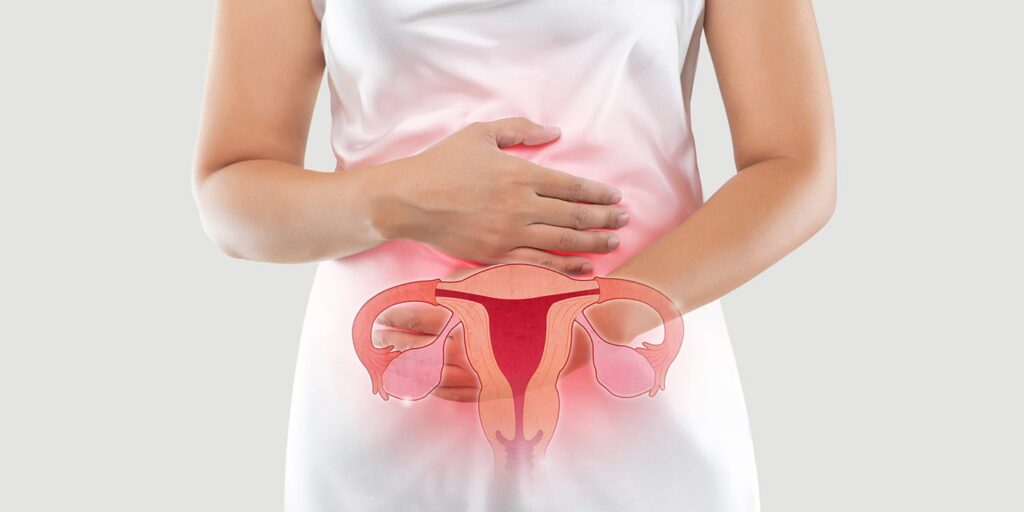
Foods and Habits to Avoid with PCOS and PCOD
Polycystic Ovary Syndrome (PCOS) and Polycystic Ovarian Disease (PCOD) are common hormonal disorders that can significantly impact a woman’s health and quality of life. Managing these conditions often involves lifestyle changes, particularly regarding diet and daily habits. Understanding which foods and habits to avoid can help alleviate symptoms and reduce the risk of associated complications.
Foods to Avoid

- Refined Carbohydrates
Refined carbohydrates, such as white bread, pastries, and sugary snacks, can lead to rapid spikes in blood sugar levels. This can exacerbate insulin resistance, a common issue in women with PCOS and PCOD. Instead, opt for whole grains like brown rice, quinoa, and whole-grain bread, which have a lower glycemic index and provide more stable energy levels.
- Sugary Beverages
Soft drinks, energy drinks, and excessive fruit juices are high in sugar and can contribute to weight gain and insulin resistance. These drinks can also lead to inflammation, worsening PCOS symptoms. Choose water, herbal teas, or unsweetened beverages to stay hydrated without added sugars.
- Processed Foods
Highly processed foods often contain unhealthy fats, additives, and preservatives that can contribute to inflammation and hormonal imbalances. Foods like frozen meals, packaged snacks, and fast food should be minimized. Focus on fresh, whole foods to support overall health.
- Dairy Products
Some women with PCOS may find that dairy products exacerbate symptoms such as acne and bloating. Dairy can also contain hormones that may interfere with hormonal balance. If you notice negative effects from dairy, consider plant-based alternatives like almond or oat milk.
- Trans Fats
Trans fats, often found in fried foods, baked goods, and margarine, can increase inflammation and worsen insulin resistance. Check ingredient labels for partially hydrogenated oils, and choose healthy fats like olive oil, avocado, and nuts instead.
- High-Sugar Foods
Foods high in sugar can contribute to weight gain and increased insulin levels. This includes candies, cakes, cookies, and other desserts. Opt for naturally sweet options like fruits, and enjoy them in moderation.
- Excessive Salt
High salt intake can lead to water retention and may increase the risk of hypertension. Processed foods are often high in sodium, so it’s best to prepare meals using fresh ingredients and herbs for flavor.
Habits to Avoid
- Sedentary Lifestyle
A lack of physical activity can lead to weight gain and worsen insulin resistance. Aim for at least 150 minutes of moderate aerobic activity per week, combined with strength training exercises. Regular movement helps manage weight and improves metabolic health.
- Stress and Poor Sleep
High-stress levels and insufficient sleep can exacerbate hormonal imbalances. Chronic stress increases cortisol levels, which can contribute to weight gain and insulin resistance. Incorporate stress-reducing activities such as yoga, meditation, or deep breathing exercises. Aim for 7-9 hours of quality sleep each night.
- Skipping Meals
Skipping meals can lead to blood sugar spikes and crashes, negatively impacting energy levels and overall health. Regular, balanced meals help maintain stable blood sugar levels and prevent excessive hunger that may lead to overeating.
- Ignoring Symptoms
Failing to recognize and address symptoms of PCOS or PCOD can lead to further complications. It’s essential to monitor your body and consult healthcare professionals when symptoms arise. Early intervention can prevent more severe health issues.
- Unhealthy Coping Mechanisms
Using food as a coping mechanism for stress, anxiety, or emotional distress can lead to unhealthy eating patterns. Instead, find alternative ways to manage emotions, such as talking to a friend, engaging in a hobby, or practicing mindfulness.
- Neglecting Regular Check-ups
Regular health check-ups are crucial for monitoring symptoms and managing PCOS or PCOD effectively. Skipping these appointments can lead to undiagnosed complications. Work with healthcare providers to develop a personalized management plan.
PCOD vs. PCOS: Are PCOD and PCOS the Same Disease?
Polycystic Ovary Disease (PCOD) and Polycystic Ovary Syndrome (PCOS) are terms often used interchangeably in discussions about women’s reproductive health. However, they represent distinct conditions with different implications for diagnosis, symptoms, and treatment. This article aims to explore the similarities and differences between PCOD and PCOS, helping to clarify the nuances of each condition and the impact they can have on women’s health.
Understanding PCOD
What is PCOD?
Polycystic Ovarian Disease (PCOD) refers primarily to the presence of multiple cysts on the ovaries. This condition is often characterized by irregular menstrual cycles due to hormonal imbalances. PCOD is generally considered to be a milder form of ovarian dysfunction compared to PCOS and does not always lead to severe long-term health issues.
Causes of PCOD
The exact cause of PCOD is not well understood, but several factors may contribute to its development:
- Hormonal Imbalances: PCOD is linked to an imbalance in hormones, particularly androgens (male hormones). Women with PCOD may have higher levels of these hormones, leading to various symptoms.
- Genetic Factors: A family history of PCOD or related hormonal disorders may increase the likelihood of developing PCOD.
- Insulin Resistance: Some women with PCOD experience insulin resistance, where the body’s cells do not respond effectively to insulin. This can lead to higher insulin levels, which may further disrupt hormonal balance.
Symptoms of PCOD
Symptoms of PCOD can vary significantly among individuals and may include:
- Irregular Menstrual Cycles: Women with PCOD often experience cycles that are longer than 35 days or may skip periods altogether.
- Mild Hirsutism: Some women may experience increased hair growth on the face and body, but this is usually less severe than in PCOS.
- Weight Gain: Although weight gain can occur, it is often less pronounced in PCOD than in PCOS.
- Fertility Issues: Women with PCOD may experience difficulties conceiving, but many can still conceive with minimal intervention.
- Skin Changes: Some may experience acne or oily skin, though these symptoms are generally milder compared to PCOS.
Understanding PCOS
What is PCOS?
Polycystic Ovary Syndrome (PCOS) is a more complex condition that encompasses a variety of symptoms and metabolic issues. It is characterized by irregular or absent menstrual cycles, elevated levels of androgens, and often the presence of multiple cysts on the ovaries.
Causes of PCOS
Similar to PCOD, the exact cause of PCOS is not entirely understood, but several factors may contribute:
- Hormonal Imbalances: Women with PCOS have elevated androgen levels, which can lead to various symptoms and complications.
- Genetic Predisposition: A family history of PCOS or related conditions can increase the likelihood of developing the syndrome.
- Insulin Resistance: Insulin resistance is common in women with PCOS, leading to higher insulin levels and further hormonal disruptions.
Symptoms of PCOS
PCOS presents a broader array of symptoms, including:
- Irregular Menstrual Cycles: Women with PCOS may experience very irregular cycles, sometimes missing periods for several months.
- Significant Hirsutism: Increased hair growth on the face, chest, and back is common and can be distressing for many women.
- Severe Acne and Oily Skin: Acne can be more pronounced in PCOS due to higher androgen levels.
- Weight Gain and Obesity: Many women with PCOS struggle with weight management, often due to insulin resistance.
- Infertility: PCOS is one of the leading causes of infertility, as it can lead to anovulation (failure to ovulate).
- Metabolic Issues: Women with PCOS are at higher risk for conditions such as type 2 diabetes, high blood pressure, and cardiovascular disease.
Key Differences Between PCOD and PCOS
While PCOD and PCOS share some common symptoms, there are significant differences between the two conditions:
- Complexity of the Condition: PCOS is more complex and encompasses a wider range of metabolic issues and symptoms than PCOD. PCOD is primarily focused on the presence of cysts and irregular cycles, while PCOS involves hormonal imbalances, metabolic dysfunction, and long-term health risks.
- Severity of Symptoms: Symptoms of PCOS are often more severe and can significantly impact a woman’s quality of life. PCOD symptoms may be milder and less likely to lead to serious health complications.
- Long-term Health Risks: PCOS is associated with higher risks of serious health issues, including type 2 diabetes, heart disease, and endometrial cancer. While PCOD can lead to some complications, the risks are generally lower.
- Management and Treatment: Treatment approaches may differ due to the complexity of each condition. Women with PCOS may require more comprehensive management strategies that address hormonal and metabolic issues, while women with PCOD may benefit from lifestyle changes and monitoring.
Diagnosis
Diagnosing PCOD
Diagnosing PCOD typically involves:
- Medical History: A thorough medical history, including menstrual cycle patterns and symptom descriptions.
- Physical Examination: A physical exam may reveal signs of hormonal imbalances, such as hirsutism or acne.
- Ultrasound: An ultrasound may show multiple cysts on the ovaries.
Diagnosing PCOS
The diagnosis of PCOS often follows the Rotterdam criteria, which require at least two of the following:
- Irregular or Absent Menstrual Cycles: Fewer than eight menstrual cycles per year.
- Elevated Androgens: Symptoms of excess androgens or laboratory tests confirming elevated levels.
- Polycystic Ovaries: Ultrasound findings showing multiple cysts on the ovaries.
Importance of Accurate Diagnosis
Accurate diagnosis is crucial for effective management. Misdiagnosis can lead to inappropriate treatment and may worsen symptoms or lead to complications. If you suspect you have PCOD or PCOS, consulting a healthcare professional for comprehensive evaluation and diagnosis is essential.
Treatment Approaches
Managing PCOD
Management of PCOD typically focuses on lifestyle changes and may include:
- Dietary Modifications: Emphasizing whole foods, reducing refined carbohydrates, and maintaining a balanced diet.
- Regular Exercise: Engaging in regular physical activity to maintain a healthy weight and improve insulin sensitivity.
- Hormonal Treatments: In some cases, hormonal contraceptives may be prescribed to regulate menstrual cycles.
Managing PCOS
The management of PCOS often requires a more comprehensive approach:
- Dietary Changes: Following a low-glycemic diet to help manage insulin levels and reduce weight gain.
- Regular Exercise: Incorporating both aerobic and strength-training exercises to improve insulin sensitivity and maintain weight.
- Medications: Depending on symptoms, medications such as hormonal contraceptives, anti-androgens (like spironolactone), or metformin (to improve insulin sensitivity) may be prescribed.
- Fertility Treatments: For women struggling with infertility, treatments such as ovulation induction may be considered.
Conclusion
While PCOD and PCOS share some similarities, they are distinct conditions with different implications for health, symptoms, and treatment approaches. Understanding these differences is crucial for effective management and maintaining overall well-being.
Women experiencing symptoms of either condition should consult healthcare professionals for proper diagnosis and personalized treatment plans. By taking proactive steps and making informed choices, women can manage their reproductive health effectively and improve their quality of life. Whether it’s through lifestyle changes, medical intervention, or emotional support, understanding PCOD and PCOS is the first step toward empowerment and better health.

